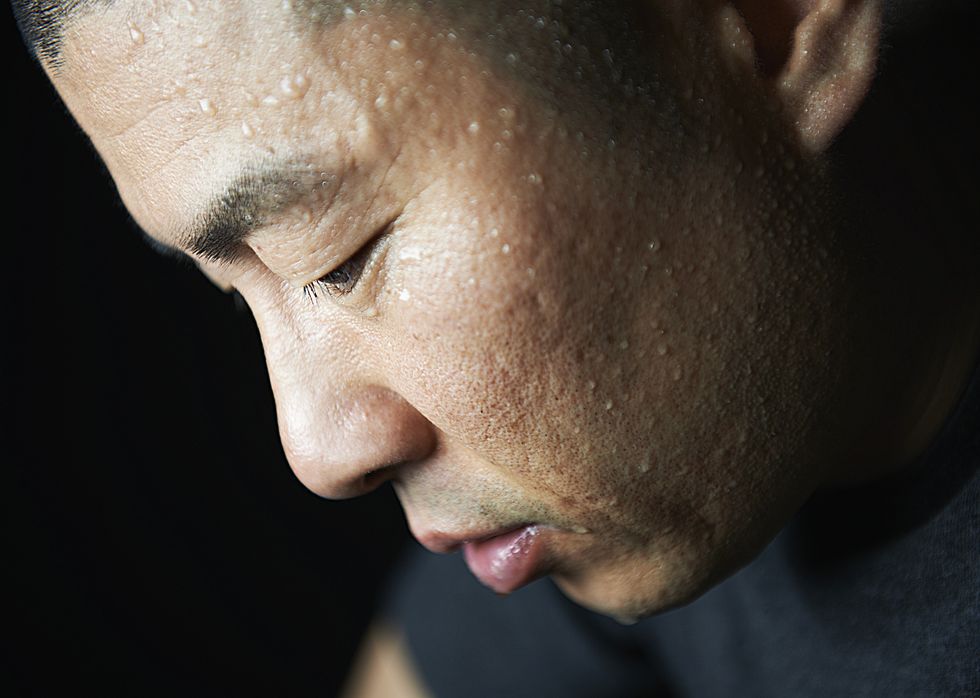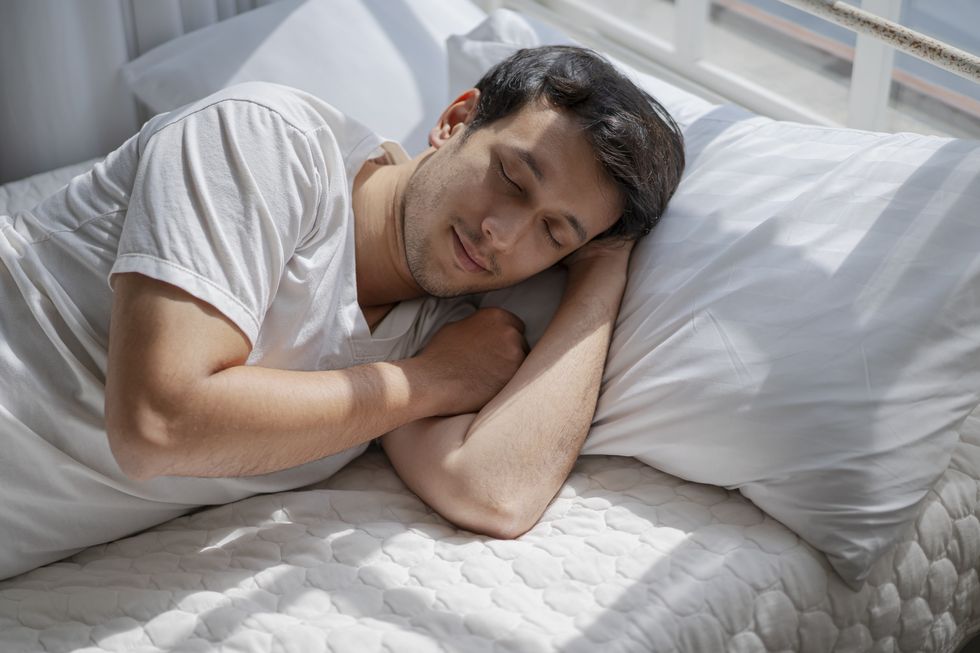How to Stop Your Night Sweats, According to Doctors (original) (raw)
WAKING UP DRENCHED in sweat in the morning might be understandable if it’s a warm night or you slept in your flannel pajamas. But, if you’re excessively sweaty on mornings when your bedroom is at a comfortable temperature, it might make you worry, and that might be for good reason.
“Sometimes, night sweats are just the body’s way of regulating temperature during sleep, especially if the environment is warm,” explains Carlo Manzana, M.D., a family medicine physician at PlushCare. “Other times, they can indicate an underlying medical condition.”
Night sweats are fairly common. In a study published in Annals of Family Medicine, about one-third of primary care patients reported night sweats during the past month. But most sufferers of night sweats never report the symptom to their doctor, says study author and family medicine physician James Mold, M.D.
Night sweats can be tricky because there’s really no one single cause, Dr. Manzana adds. You might have to do some research or talk to your doctor to get to the bottom of what’s prompting your perspiration.
Often, you can reduce instances of night sweats by modifying your sleeping environment, such as by wearing lightweight clothing, choosing lighter bedding, and making sure your bedroom is a comfortable temperature, says Jeffrey Davis, D.O., C.M.D., an American Osteopathic Association board-certified family medicine physician.
If those modifications don’t help, there could be something more serious going on with your health, and getting treated could help keep your body temperature in check, he says. “Night sweats are a common cause for people seeking a medical evaluation.”
What causes night sweats?
Your body uses sweat to reduce your core temperature when it spikes above a threshold called the thermoneutral zone, according to the Cleveland Clinic. Lots of things can push your body temp into this zone, from using heavy blankets to inflammatory processes inside your body when you have an infection or disease.

Tara Moore//Getty Images
Several conditions can impact your sympathetic nervous system, your sweat glands, or other factors that influence your body’s ability to regulate its temperature. It's also possible that people who work out may be conditioned to sweat at lower temperatures than expected, research shows.
Plus, some people are just warm-natured and may sweat more than others.
A literature review published in the Journal of the American Board of Family Medicine revealed that several factors increase the likelihood of night sweats, including panic attacks, sleep problems, fever, numbness in hands and feet, anxiety and stress, and trouble breathing at night.
Night sweats may also be a side effect of medication, including selective serotonin reuptake inhibitors (SSRIs), commonly prescribed for depression. Opioid use is also linked to night sweats, Dr. Davis says. Additionally, according to the Mayo Clinic, other potential causes include excessive alcohol.
Hormones can also play a role in why someone experiences night sweats. While men don’t experience night sweats as often as women do, they can sometimes be caused by low testosterone levels (also known as male hypogonadism), Dr. Davis says.
Infections can be to blame, too, Dr. Davis adds. An infection or other inflammatory condition releases chemicals known as cytokines, which can change the body’s internal temperature and result in night sweats—sometimes related to a fever and sometimes not.
Night sweats can also be a sign of a serious condition, such as certain types of cancer, obesity, thyroid problems, or autoimmune conditions, Dr. Davis adds. They might also be connected to heart problems or sleep apnea, which can cause you to momentarily stop breathing while you sleep, Dr. Mold says.
So, definitely talk to your doctor if you’ve started experiencing regular night sweats out of nowhere.
How to Reduce Night Sweats
If you wake up in a pool of sweat almost every night and your pajamas are soaked through, here are some things that might help (the first ones are pretty obvious, but make sure you're doing them):
- Adjust your bedroom temperature to make it a little cooler
- Add a fan to circulate air
- Wear less clothing or lightweight, breathable pajamas
- Use lightweight bedding, like linen or light cotton—flannel or polyester can hold in body heat
- Avoid working out too close to bedtime
- Don’t drink too much alcohol before sleeping
- Stay away from spicy foods before going to sleep
- Maintain a healthy weight
Still waking up soaking in sweat after making these adjustments? Call your doctor, Dr. Manzana urges. Also, be sure to note any other symptoms that you’re having.

pipat wongsawang//Getty Images
“The best way to treat night sweats is to address the underlying cause, which can vary widely,” he adds.
Doctors may adjust your medications or run tests to uncover the cause. For instance, in the case of SSRI-induced night sweats, some people have seen improvement by adding medications called alpha-adrenergic blockers, research shows.
When to Worry About Night Sweats
Waking up drenched every once in a while isn’t much to worry about, but if it happens frequently or every night, get it checked out, Dr. Davis says. Also, see a doctor if your night sweats develop out of nowhere.
If other symptoms accompany your night sweats, that could also be cause for concern, he adds. Some red flags to watch for include unexplained weight loss, heart palpitations, jitteriness, tremors, decreased appetite, fatigue, swollen lymph nodes or thyroid glands, or pain in the bones, chest, or abdomen.
A key step in solving your night sweats is seeing a doctor; you don't need to lose sleep worrying about why you're having them. “They can help determine whether the night sweats are benign and can be managed with environmental changes," Dr. Manzana says, "or if they warrant a more thorough medical evaluation.”